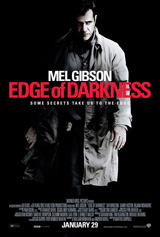Just after the New Year, my writers group gathered at a German tavern in the Los Angeles neighborhood of Silver Lake to touch base over ale and wieners dunked in steins of pea soup. At that point, we had been working together for a year, but I think we all felt we were in danger of disbanding. As of the end of the fall semester, we had all completed our theses—a major driver for participation in the group—and graduated.
We were determined to stick together, however, and we’re stronger than ever after instituting and enforcing (more or less) some rules. If you want your writers group to last, set the parameters up front:
1. Makeup: Keep it small. For a critique group, I’d suggest no more than four to six people. “Any more, and either the meetings are way too long or not everyone gets equal time,” reasons one of my writers group members. “Too few members, and there’s not nearly as much chance for differing voices in terms of critique. … It’s good to have enough people that you can rotate submissions.” Conversely, you don’t want to have to wait too long between opportunities to share your work.
Only invite writers whom you admire and respect. You want to be challenged by your writers group, and you want to read good work while you’re there. BookFox blogger John Fox goes so far as to suggest “hazing—preferably painful, embarrassing hazing—and guidelines like they have to submit sample papers to join. Groups with porous membership regulations fail easily.”
2. Operations: Once you’ve assembled your writers group, set some ground rules. First, meet regularly. Every other week works well for most groups. “Frequent meetings—let’s say twice monthly—are ideal because they not only solidify the bond among group members by making the activity a regular occurrence, but they also force people to write,” says my fellow writers group member. “Meet too infrequently, and it’s a lot easier to postpone or cancel meetings.” (We’ve had problems with this in the past.)
Second, set deadlines. In our group, we submit on one Wednesday and meet the next, although some members (that’d be me!) tend to push the deadline as far back as the weekend.
Finally, everybody submits. Our group used to be a free-for-all where we submitted work when we had it. The problem with this was if one of us was suffering from writers block, we could go several meetings without seeing his or her work. A guiding tenet of critique groups is the trust that’s built between writers who are sharing sometimes raw work; it’s not fair to critique others without putting yourself on the line. Besides, the guilty parties felt, well, guilty, and that’s not good for anybody. Now we’re on a schedule, submitting two out of every three meetings.
“One thing to keep in mind: rules like these only work if they’re implemented or enforced,” adds my writers group member. We’ve gotten much better about this. It’s probably too obnoxious to actually assign leadership positions, but often they happen naturally: one of us leads groups discussions when we have administrative details to take care of; a couple others gently nudge us with emails or texts when we’re past deadline.
3. Critiques: I had one writing instructor—tellingly, a graduate from the Iowa Writers’ Workshop, which has been criticized for its cutthroat atmosphere—whose guidelines for critique protected the writer’s feelings to an almost ridiculous extent. We were asked not to refer to the writer by name, but to call him or her “the author” during our critiques, and we were not to look at the writer while we critiqued his or her work. I find this approach to be counterintuitive—I want to convey my sincerity during critiques by speaking directly to the writer and looking him or her in the eye.
How supportive comments should be is also up for debate. “Keeping critiques supportive could foster an environment of coddling, but I do think it’s a good idea to keep them constructive. (i.e., not ‘This sucks,’ but ‘Here’s why this sucks, and here are some ways it could possibly be fixed.’),” says a member from my writers group. “Mutual admiration is great, but the really valuable feedback comes when your writers group lets you know what isn’t working.
Again, Fox takes a hard line: “Don’t give supportive critiques. Critiques should be debilitating and harsh. The minute you start cheerleading is the minute you lose respectability. Of course you need to talk about what is good with the piece, and tell someone where to submit it, and how much work it needs (if much) before they send it out, but focus on the negative. That’s what’s helpful.”
Focus on overarching issues. Typos, misspellings, and misused commas can be addressed in later drafts.
During the critique, the writer should listen to the comments of the other group members. Don’t respond. Don’t explain. Don’t defend. If you keep your replies to a minimum, you will get a more accurate critique from your readers and you’ll be better able to absorb their comments.
Do, however, take notes. You might even record your critique to audiotape. Later, you can throw out comments that are useless or irrelevant and keep those that are helpful.
For more tips on writers groups, check out these related posts by Quips and Tips for Freelance Writers and Dames of Dialogue.
For previous installments in this series, check out “Part I—Benefits” and “Part II—Types.”







